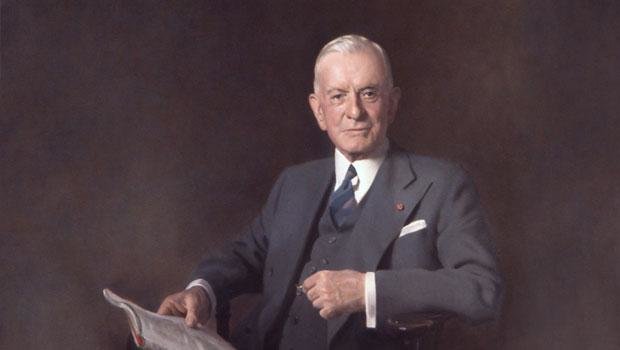A leadership secret
The editor talks with you
I was a rookie infantryman in Korea the day IBM founder Thomas Watson died.
I recall reading in Stars and Stripes, our military newspaper, about Watson’s death of a heart attack at age 82. It …
This item is available in full to subscribers.
Subscribe to continue reading. Already a subscriber? Sign in
Get 50% of all subscriptions for a limited time. Subscribe today.
Please log in to continueNeed an account?
|
A leadership secret
The editor talks with you
I was a rookie infantryman in Korea the day IBM founder Thomas Watson died.
I recall reading in Stars and Stripes, our military newspaper, about Watson’s death of a heart attack at age 82. It was years before I realized the significance of his life and the crisis leadership lessons he taught.
Watson and his son had built one of the world’s strongest technology companies.
At International Business Machines, they never fired anyone. If you made in through their screening and landed a job, you never had to worry about leaving. They believed that when you treat your people well, they will treat your customers well.
In his time, Tom, had become known as “the world’s greatest salesman.”
As a leader, if you think you aren’t in sales, you’re wrong. As a leader you must sell your vision to your people.
If they believe in you and the products and services you offer, they will sell with confidence and all of you will succeed.
The Watsons believed in the knowledge industry IBM was leading and the value of education and thought.
They didn’t call it this but I like to think of their creed was “Don’t just do something stupid. Think about it first.”
A great IBM leadership story is about a young Harvard MBA grad Tom hired.
The young man, filled with confidence, came up with what he thought was a bright idea and sold it to the Watsons.
They thought it good, too, invested a million dollars (probably worth 10 times that now) but the product’s sales fizzled.
The market wasn’t ready for it or tried it and was not impressed with the results.
The young man was crushed. He painfully typed – on an IBM electric typewriter – his resignation letter. Watson read it and, in front of the young man, tore it up.
The letter writer was shocked.
“We just invested a million dollars in your education,” Watson said. “Get out there and bring me another bright idea.”
Meeting with fellow salesmen, their lack of good ideas frustrated Watson.
“The trouble with every one of us is that we don’t think enough,” he told them.
“Knowledge is the result of thought, and thought is the keynote of success.”
He said “The trouble with everyone of us.” He did not say, “The trouble with you.”
Watson knew the value of inclusion. He never pointed fingers. If something failed, he took the blame.
Watson knew the power of two words, “we” and ”us.” He never separated himself for the responsibility to succeed.
I once worked with a publisher who could do no wrong – in his own mind. If it failed, it was someone else’s fault.
He was quick to blame and quicker to take credit. I didn’t work for him any longer than it took to find a better boss.
But his bad example taught me 3 valuable leadership lessons:
1. Treat everyone with respect.
2. Give credit where it belongs.
3. Take responsibility for failures, no matter who really screwed up.
What’s your attitude towards your people. Do they work “with” or “for” you?
And do you work for them?
Chronicle Editor Emeritus Jerry Bellune writes this weekly letter to his readers each week.
Keywords
IBM, Thomas Watson, leadershipOther items that may interest you







Comments
No comments on this item Please log in to comment by clicking here